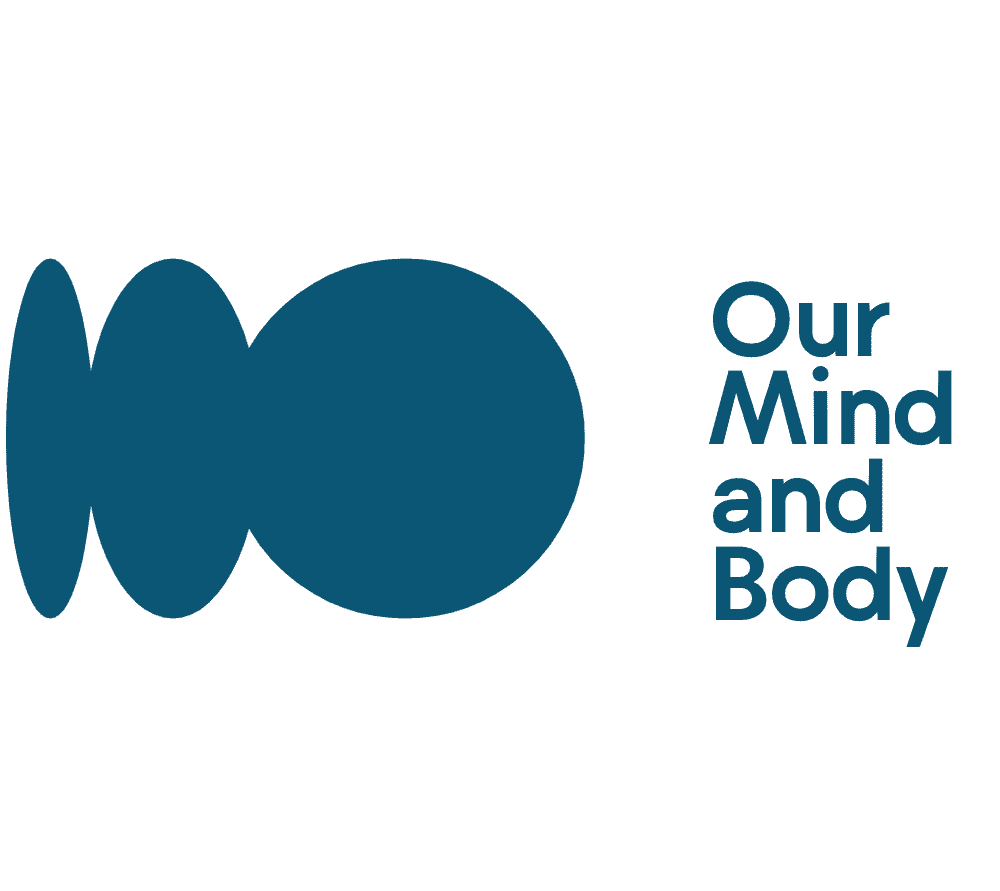Meditation
Deep Sleep Meditation: Achieve Restful Nights

Picture a peaceful retreat where falling asleep is easy and rejuvenating nights are typical. Deep Sleep Meditation is the secret to achieving this idyllic state of happiness. Through utilizing deep breathing, visualization, and affirmations, this technique leads you into a deep state of relaxation, allowing for restorative sleep.
In this article, I will delve into the world of Deep Sleep Meditation, exploring its benefits, techniques, and the essential steps to achieve restful nights. Get ready to embark on a transformative journey towards a peaceful and well-rested mind and body.
Key Takeaways
- Deep sleep meditation can improve sleep quality by calming the mind and reducing stress.
- It helps increase energy levels and enhances focus and concentration.
- Deep sleep meditation promotes relaxation and prepares the body for deep rest through deep breathing techniques and visualization.
- Consistent practice of deep sleep meditation can establish a bedtime routine, improve sleep patterns, and maximize its benefits for optimal results.
What is it?
I know that deep sleep meditation is a calming and guided practice that prepares the body for deep rest. It incorporates deep breathing techniques, visualization, and affirmations. This technique brings several benefits, including improved sleep quality, increased energy levels, enhanced focus and concentration, and reduced stress and anxiety.
To achieve deep sleep meditation, there are certain techniques that can be followed. First, set a calm environment and establish a routine. Then, focus on your breathing and visualize peaceful scenes. Practice affirmations to promote relaxation. Find a comfortable position, close your eyes, and take deep breaths. Allow your mind and body to relax.
Consistent practice is key to maximize the benefits. Start with a few minutes each night and gradually increase the duration. Find a time that works best for you and make it a priority in your schedule.
Benefits and Effects
Enhancing sleep quality through deep sleep meditation can lead to improved energy levels, enhanced focus, reduced stress, and an overall better mood.
Deep sleep meditation provides enhanced relaxation, allowing the mind and body to enter a state of deep rest. This practice helps to improve sleep patterns by calming the mind, reducing racing thoughts, and promoting a sense of tranquility.
By incorporating deep breathing techniques, visualization, and affirmations, deep sleep meditation prepares the body for a restful night’s sleep. It helps to regulate sleep cycles and promote a more restorative sleep experience.
With consistent practice, deep sleep meditation can help individuals achieve a deeper and more rejuvenating sleep, leading to increased energy levels, enhanced focus and concentration, and a reduction in stress and anxiety.
Tips and Steps
Establishing a calm environment and incorporating deep breathing techniques are essential steps in preparing the mind and body for a peaceful and rejuvenating sleep experience. To enhance the effectiveness of deep sleep meditation, visualization techniques and affirmations for relaxation can be incorporated.
Visualization Techniques:
- Imagine yourself in a serene and tranquil setting, such as a peaceful beach or a lush forest.
- Visualize each breath as a wave gently lapping on the shore, bringing a sense of calmness and relaxation.
- Picture your body becoming heavier and sinking into a comfortable, supportive surface, allowing your muscles to fully relax.
Affirmations for Relaxation:
- Repeat positive phrases such as ‘I am calm and at peace’ or ‘I release all tension and stress’ to promote a state of relaxation.
- Focus on affirmations that resonate with you personally, reinforcing a sense of tranquility and ease.
By incorporating visualization techniques and affirmations for relaxation into deep sleep meditation, you can enhance its effectiveness and achieve a restful night’s sleep.
Importance and Incorporation
Maximizing the benefits of deep sleep meditation requires consistent practice and establishing a bedtime routine. By making deep sleep meditation a priority in your schedule and staying consistent, you can achieve optimal results in improving your sleep patterns. To help you get started, here are two key aspects to focus on when incorporating deep sleep meditation into your routine:
-
Set a Calm Environment: Create a peaceful atmosphere in your bedroom by dimming the lights, playing soothing music, and removing any distractions.
-
Establish a Bedtime Routine: Design a relaxing routine that signals to your body and mind that it’s time to wind down. This could include activities such as taking a warm bath, reading a book, or practicing gentle stretching.
By consistently practicing deep sleep meditation and following a bedtime routine, you can train your mind and body to relax, improve your sleep quality, and wake up feeling refreshed and rejuvenated.
Comparison and Additional Benefits
I prefer regular meditation because it offers more versatility and can be used for various purposes throughout the day. While deep sleep meditation is specifically focused on relaxation and sleep preparation, regular meditation can be practiced at any time and in any setting. It provides mental and physical health benefits and can be tailored to individual needs.
However, when it comes to achieving restful nights, deep sleep meditation is particularly effective. It goes beyond regular sleep aids by calming the mind and body, reducing cortisol levels, and promoting deep relaxation. This makes it a valuable tool for managing sleep disorders such as insomnia and improving overall sleep quality.
By incorporating deep sleep meditation into a bedtime routine, one can experience the powerful benefits it offers for achieving restful nights.
Frequently Asked Questions
Can deep sleep meditation cure insomnia?
Deep sleep meditation techniques can help improve insomnia, but it may not cure it completely. Scientific evidence supports the benefits of deep sleep meditation in improving sleep quality and reducing insomnia symptoms.
Is deep sleep meditation only effective for nighttime sleep or can it also be used for power naps?
Deep sleep meditation is not limited to nighttime sleep; it can also be effective for power naps. It provides stress relief and improves focus, making it a valuable tool for relaxation and rejuvenation throughout the day.
How long does it usually take to see the benefits of deep sleep meditation?
It usually takes a few weeks of consistent deep sleep meditation practice to see the benefits. Deep sleep meditation techniques, such as calming the mind, reducing stress, and focusing on breathing, help improve sleep quality and increase energy levels.
Can deep sleep meditation be used as a substitute for medication for sleep disorders?
Deep sleep meditation is an effective natural method to improve sleep disorders, but it should not be used as a substitute for medication. While deep sleep meditation can promote better sleep, medication may be necessary for severe sleep disorders.
Is it necessary to incorporate deep sleep meditation into a bedtime routine, or can it be done at any time of the day?
It is beneficial to incorporate deep sleep meditation into a bedtime routine. This practice helps promote overall well-being by improving sleep quality, reducing stress, and enhancing focus. Consistency is important for optimal results.
Conclusion
In conclusion, Deep Sleep Meditation is a powerful tool that can transform your nights and rejuvenate your mind and body. By embracing this practice, you can unlock the key to restful sleep, improved cognitive function, and enhanced overall well-being.
Like a gentle lullaby, Deep Sleep Meditation guides us to a serene state of relaxation, where we can drift away into a peaceful realm of dreams.
So, embrace the power of Deep Sleep Meditation and let it be the soothing melody that carries you to a night of blissful sleep. Sweet dreams await.
Meet Kiran, the guiding light of wisdom behind the empowering content at OurMindAndBody.com. As a talented and compassionate writer, Kiran weaves words with grace and insight, sharing profound knowledge and practical advice to inspire positive transformations in the lives of readers.
With a background in psychology and a deep-rooted passion for well-being, Kiran brings a unique blend of expertise and empathy to her writing. Her journey into the realm of mindfulness, meditation, and yoga began as a personal quest for self-discovery and healing. Having experienced the profound benefits of these practices firsthand, Kiran is committed to empowering others to embark on their own journeys of self-exploration and growth.
Meditation
Unplug, Connect, Serve: The Path To Spiritual Fulfillment

Did you know that the average person spends over 11 hours a day interacting with technology? In our heavily interconnected world, seeking spiritual fulfillment may seem like a daunting task.
However, by intentionally disconnecting from technology, immersing ourselves in nature, engaging in activities that bring us joy, and selflessly serving others, we can embark on a transformative journey towards spiritual fulfillment.
In this article, we will explore the benefits of nature connection, the power of joyful activities, the transformative effects of selfless service, and the importance of finding purpose and meaning in our lives.
Join us as we uncover the path to spiritual fulfillment through the practices of unplugging, connecting, and serving.
Key Takeaways
- Cultivating peace and clarity through disconnection and unplugging
- Finding purpose and meaning through mindfulness and personal growth
- Seeking alignment with core values and beliefs to live a purpose-driven life
- Discovering meaning in everyday experiences and fostering gratitude and contentment
Benefits of Nature Connection
Nature connection has been shown to provide numerous benefits, including increased inner peace and contentment, enhanced personal growth and self-awareness, improved mental and emotional well-being, strengthened connection with the world around us, and a greater sense of purpose and meaning in life.
The healing power of nature is undeniable. When we immerse ourselves in the beauty of the natural world, we tap into a source of tranquility and rejuvenation. The sights, sounds, and smells of nature have a profound effect on our well-being, calming our minds and soothing our souls.
Additionally, nature connection fosters environmental consciousness. As we spend time in nature, we become more aware of the interconnectedness of all living beings and develop a deep appreciation for the Earth’s delicate balance. This awareness inspires us to take action to protect and preserve our planet, leading to a greater sense of purpose and fulfillment in our lives.
Activities for Joy and Fulfillment
Engaging in activities that bring one joy can be likened to a vibrant tapestry of colors, weaving together moments of delight and contentment into the fabric of one’s existence. These activities not only provide a sense of fulfillment but also contribute to spiritual growth and well-being.
-
Mindful movement: Engaging in activities such as yoga, tai chi, or dancing can help cultivate a deeper connection between the mind and body. It allows one to be fully present in the moment, fostering a sense of mindfulness and self-awareness.
-
Creative expression: Exploring creative outlets like painting, writing, or playing a musical instrument allows individuals to tap into their innate creativity. It provides an avenue for self-expression, igniting passion and enthusiasm in the process.
By immersing oneself in these activities, individuals can experience a profound sense of joy and fulfillment. It is through these moments of bliss that one can truly nourish their spirit and embark on a transformative journey of self-discovery.
Selfless Service and Compassion
Selfless service and compassion are integral aspects of one’s journey towards personal growth and interconnectedness. When we engage in acts of selfless service, we not only contribute to the well-being of others, but we also cultivate compassion and empathy within ourselves. The act of serving others creates a positive impact on their lives, whether it be through small acts of kindness or larger acts of charity. It allows us to connect with others on a deeper level and build a sense of interconnectedness and unity. The ripple effect of our actions can generate kindness and goodwill in the world, creating a more compassionate and caring society. Through selfless service, we not only enhance our own personal growth and selflessness, but we also have the power to inspire and uplift those around us.
| Compassion and Empathy | Positive Impact |
|---|---|
| Cultivates a deep sense of understanding and empathy towards others. | Creates a positive change in the lives of those we serve. |
| Fosters a connection and bond with others, promoting a sense of unity. | Inspires and uplifts those we interact with, spreading positivity. |
| Encourages us to act with kindness and generosity towards others. | Builds a stronger and more compassionate society. |
Uplifting and Encouraging Literature
Uplifting and encouraging literature has the potential to inspire individuals on their personal growth journey, fostering a greater sense of connection and understanding towards themselves and others. Finding inspiration in books can be a transformative experience, allowing individuals to explore different perspectives, gain insights, and discover new possibilities.
Choosing uplifting books is essential in this process. Opt for literature that speaks to your interests, values, and aspirations. Look for books that offer wisdom, guidance, and encouragement. Whether it’s a memoir, a self-help book, or a collection of inspirational quotes, the right literature can provide a source of motivation and strength.
Through uplifting and encouraging literature, individuals can embark on a journey of self-discovery and self-improvement. These books can serve as a guiding light, helping individuals navigate challenges, cultivate positive habits, and embrace personal growth. By immersing themselves in words that inspire, individuals can tap into their inner strengths, find solace in difficult times, and ultimately, foster a deeper sense of spiritual fulfillment.
Daily Meditation and Reflection
Immersing oneself in the practice of daily meditation and reflection is like embarking on a serene journey within, where the mind becomes a still lake reflecting the depths of one’s thoughts and emotions.
Daily meditation provides numerous benefits for spiritual fulfillment. It allows individuals to cultivate a sense of inner peace and tranquility, enabling them to navigate the challenges of life with greater ease. Through meditation, one can develop a heightened self-awareness, gaining clarity and insight into their true nature and purpose. It promotes a deeper connection with oneself and the world around, fostering a sense of interconnectedness and unity.
Additionally, self-reflection plays a significant role in spiritual growth. It allows individuals to examine their thoughts, actions, and beliefs, leading to personal transformation and growth. By taking the time to reflect, one can gain a deeper understanding of themselves and make necessary changes to align with their spiritual goals.
Inner Peace and Contentment
Achieving a state of inner peace and contentment is a result of daily meditation and self-reflection practices. By engaging in mindfulness practices, individuals can learn to be fully present in the moment, letting go of worries and anxieties. This allows for a deeper connection with oneself and the world around them.
Cultivating gratitude is another important aspect of finding inner peace and contentment. By focusing on the positive aspects of life and expressing gratitude for them, individuals can shift their perspective and find joy in the simple things.
Additionally, self-reflection helps individuals to understand themselves better, uncovering their strengths and weaknesses. This introspective process allows for personal growth and self-awareness, leading to a greater sense of inner peace and contentment.
Unplugging for Mindfulness
Detaching from technological distractions enables individuals to engage in a state of mindful presence, fostering a deeper connection with oneself and promoting a heightened sense of awareness.
In today’s fast-paced and technology-driven world, it is essential to unplug and embrace nature therapy as a means of reconnecting with our inner selves. By disconnecting from technology and immersing ourselves in the beauty of nature, we can experience a sense of calm and tranquility that rejuvenates the spirit.
Mindful technology use also plays a crucial role in this process, allowing us to utilize technology in a way that supports our well-being rather than being consumed by it. By consciously choosing when and how to engage with technology, we can create a balance that promotes mindfulness and present moment awareness.
Through this intentional disconnection, we can cultivate a sense of peace and clarity, ultimately leading us on a path to spiritual fulfillment.
Finding Purpose and Meaning
Transitioning from the previous subtopic of ‘Unplugging for Mindfulness,’ we now delve into the concept of ‘Finding Purpose and Meaning.’ In our fast-paced and technology-driven world, it is easy to lose sight of the bigger picture and become disconnected from what truly matters.
However, by taking the time to unplug and reconnect with ourselves, we open the door to discovering life’s purpose and finding meaning in everyday experiences.
Finding purpose and meaning is a deeply personal journey, unique to each individual. It involves introspection and reflection, as well as a willingness to explore and embrace new perspectives. To embark on this journey, consider the following:
-
Embrace curiosity: Approach life with an open mind and a sense of wonder. Allow yourself to explore different interests and passions, for they may hold the key to your purpose.
-
Seek alignment: Pay attention to the activities and experiences that resonate with your core values and beliefs. Find ways to incorporate them into your daily life, as they can bring immense fulfillment.
-
Serve others: Engage in acts of kindness and selfless service. By helping others, we often find a sense of purpose and meaning that extends beyond ourselves.
Through these intentional practices, we can uncover the beauty and significance of our existence, finding purpose and meaning in the simplest of moments.
Frequently Asked Questions
How can connecting with nature benefit our spiritual fulfillment?
Connecting with nature can benefit our spiritual fulfillment by allowing us to find peace in solitude and connecting with animals. It provides an opportunity for introspection, reflection, and a deeper connection with the natural world around us.
What are some activities that can bring us joy and fulfillment in a spiritual sense?
Activities that bring joy and fulfillment in a spiritual sense include mindful meditation, engaging in sacred rituals, and practicing gratitude. These practices foster introspection, inspire inner growth, and nurture a deeper connection with oneself and the world.
How does selfless service and compassion contribute to our spiritual growth?
Selfless service and compassion contribute to spiritual growth by cultivating empathy, interconnectedness, and personal growth. They create a positive impact on others’ lives, fostering a sense of unity and generating a ripple effect of kindness and goodwill.
Can you recommend some uplifting and encouraging literature for spiritual inspiration?
Uplifting literature can provide spiritual inspiration by offering profound insights and stirring emotions. It encourages introspection, ignites the soul, and fosters personal growth. Explore works by Rumi, Eckhart Tolle, or Thich Nhat Hanh for transformative reads.
What are some practical tips for incorporating daily meditation and self-reflection into our spiritual practice?
Practical tips for beginners to incorporate daily meditation and self-reflection into their spiritual practice include finding a quiet space, setting a regular schedule, focusing on the breath, using guided meditations, and journaling for self-reflection. These practices can help cultivate inner peace and self-awareness.
Say hello to Cypress, the soulful wordsmith behind the insightful articles at OurMindAndBody.com. Cypress is a gifted writer who weaves words with grace and precision, using language as a powerful tool to inspire, heal, and uplift the spirits of readers.
With a background in literature and a passion for personal growth, Cypress brings a unique perspective to the world of well-being and spirituality. Having experienced the transformative effects of meditation and yoga firsthand, Cypress is deeply connected to the essence of these practices and their potential to enrich lives.
Meditation
Victorious In Spiritual Warfare: Strategies For Overcoming

In the realm of life, we often find ourselves entangled in a spiritual battle, facing off against dark forces. Like a warrior facing an enemy, we need strategies to lead us to victory.
In this article, we will explore the key strategies for overcoming spiritual warfare and emerging triumphant. From recognizing the signs of spiritual attacks to utilizing powerful spiritual weapons, we will delve into the tactics that will enable us to stand firm and claim our victory in the face of adversity.
Key Takeaways
- Spiritual warfare is a battle fought on a spiritual level between souls and forces of evil, and it includes various types such as temptation to sin, demonic oppression, and personal struggles with faith.
- Prayer plays a critical role in overcoming spiritual warfare, and cultivating a healthy relationship with fellow believers helps stay grounded in faith.
- Signs of spiritual warfare can manifest physically, emotionally, and spiritually, and it is important to consult a trusted counselor or clergy member to explore potential spiritual warfare.
- Overcoming spiritual warfare can be achieved through prayer and fasting, building a stronger relationship with God, reading and studying Scriptures, and seeking assistance from fellow believers.
Understanding Spiritual Warfare
I understand spiritual warfare as a battle fought on a spiritual level between souls and forces of evil. Different types of spiritual warfare include temptation to sin, demonic oppression, and personal struggles with faith.
The nature of spiritual warfare is not physical, but it requires spiritual weapons for victory. Satan and his demons use deception, accusation, temptation, and fear to weaken and control individuals or societies.
In order to overcome spiritual warfare, prayer plays a critical role. It is through prayer that we communicate with God, seek His guidance, and receive His strength. Prayer is our weapon against the enemy, and it helps us to stay connected to God, to resist temptation, and to find comfort and peace in His presence.
The importance of prayer in spiritual warfare cannot be overstated. It is through prayer that we tap into the power and authority that God has given us to overcome the enemy.
Types and Signs
Identifying the various forms and recognizing the signs of spiritual warfare is crucial in navigating the battle against evil forces.
Spiritual warfare can manifest in different ways, including direct attacks, attacks on our mind faculties, and disruptions of relationships.
It is important to be vigilant and observant of physical, emotional, and spiritual signs that may indicate spiritual warfare. These signs can include exhaustion, headaches, confusion, anxiety, feeling disconnected from God, and disturbing dreams.
When we identify these signs, it is essential to seek guidance from trusted counselors or clergy members who can help us explore the possibility of spiritual warfare.
By being aware and proactive in identifying attacks, we can better equip ourselves to overcome spiritual warfare and walk in victory.
Overcoming Strategies
To conquer the battle against evil forces, I rely on prayer, fasting, building a stronger relationship with God, studying Scriptures, seeking assistance from fellow believers, and putting on the Armor of God. These strategies have proven effective in overcoming spiritual warfare and maintaining victory.
Prayer and fasting are powerful tools that connect me to the divine and help me receive guidance and strength. They provide a direct line of communication with God and allow me to seek His intervention in the midst of spiritual attacks. Additionally, building a stronger relationship with God empowers me to resist the enemy’s schemes and stand firm in my faith. This involves spending time in worship, meditation, and cultivating a deep intimacy with Him.
Moreover, studying Scriptures is essential as it equips me with the knowledge and wisdom to discern the enemy’s tactics and counter them with the truth. It serves as a spiritual weapon that exposes the lies and deception of the enemy. Seeking assistance from fellow believers is also crucial, as we can support and encourage one another in the midst of spiritual battles. Together, we can pray, intercede, and hold each other accountable, strengthening our collective resistance against the forces of evil. Finally, putting on the Armor of God is a vital strategy for protection and defense. It includes the belt of truth, the breastplate of righteousness, the shoes of the gospel of peace, the shield of faith, the helmet of salvation, and the sword of the Spirit. By arming ourselves with these spiritual weapons, we can overcome the attacks of the enemy and maintain victory in spiritual warfare.
| Strategies for Overcoming | Benefits |
|---|---|
| Prayer and fasting | Connects me to God and provides guidance and strength |
| Building a stronger relationship with God | Empowers me to resist the enemy’s schemes and stand firm in faith |
| Studying Scriptures | Equips me with knowledge and wisdom to discern and counter enemy tactics |
| Seeking assistance from fellow believers | Provides support, encouragement, and collective resistance |
| Putting on the Armor of God | Protects and defends against spiritual attacks |
Maintaining Victory
Maintaining victory in the battle against evil forces requires staying grounded in prayer. Prayer becomes our shield and our weapon, allowing us to communicate with God and seek His guidance and protection. Discerning and resisting spiritual attacks is another crucial aspect. Building resilience is essential in withstanding the constant assaults of spiritual warfare. It involves strengthening our faith, cultivating a deep relationship with God, and relying on His power to overcome. Seeking accountability is also crucial. Surrounding ourselves with fellow believers who can support, encourage, and hold us accountable helps us stay on the right path and avoid falling into the enemy’s traps. By staying grounded in prayer, building resilience, and seeking accountability, we can maintain our victory in spiritual warfare.
Frequently Asked Questions
How can I discern if I am experiencing spiritual warfare or if it’s just a regular struggle?
To discern if I am experiencing spiritual warfare or a regular struggle, I look for spiritual signs like feeling disconnected from God or having disturbing dreams. Consulting a trusted counselor or clergy member can also help.
Can spiritual warfare affect my physical health?
The impact of spiritual warfare on physical health may vary. Understanding the connection between spiritual and physical well-being is crucial. Seeking holistic approaches to healing in the face of spiritual warfare can provide a path towards restoration.
Is it possible for someone to unknowingly invite spiritual warfare into their life?
Yes, it is possible for someone to unknowingly invite spiritual warfare into their life. Signs and symptoms may include feeling disconnected from God, experiencing disturbing dreams, and facing various physical, emotional, and spiritual challenges.
Are there specific prayers or practices that can help in overcoming spiritual warfare?
Specific prayers and effective practices are like spiritual weapons that can help us overcome spiritual warfare. They serve as a shield and sword, empowering us to stand firm and fight against the forces of evil.
How can I protect myself from becoming vulnerable to spiritual attacks?
To protect myself from spiritual attacks, I employ effective strategies such as building a strong spiritual foundation. This includes prayer, fasting, and studying Scriptures. I also seek support from fellow believers and put on the Armor of God.
Conclusion
In conclusion, spiritual warfare is a real battle that individuals face on a daily basis. It is important to understand the types and signs of spiritual warfare in order to recognize and overcome them.
By utilizing strategies such as prayer, fasting, building a stronger relationship with God, and seeking support from fellow believers, we can overcome the forces of evil and maintain victory in our spiritual lives.
One interesting statistic to consider is that studies have shown that individuals who actively engage in spiritual warfare strategies experience a significant increase in their faith and overall well-being. This highlights the importance of actively participating in the fight against spiritual warfare and the positive impact it can have on our lives.
Say hello to Cypress, the soulful wordsmith behind the insightful articles at OurMindAndBody.com. Cypress is a gifted writer who weaves words with grace and precision, using language as a powerful tool to inspire, heal, and uplift the spirits of readers.
With a background in literature and a passion for personal growth, Cypress brings a unique perspective to the world of well-being and spirituality. Having experienced the transformative effects of meditation and yoga firsthand, Cypress is deeply connected to the essence of these practices and their potential to enrich lives.
Meditation
Yoga Bolster Options: Ultimate Guide For 2022

In the yoga practice, a bolster is a crucial accessory that provides stability, support, and comfort in various poses and meditation.
As the year 2022 unfolds, it becomes crucial to explore the plethora of options available and make an informed decision when choosing a yoga bolster.
This ultimate guide presents a comprehensive overview of the top yoga bolster options, highlighting their unique features, benefits, and considerations.
Whether you seek proper alignment, muscle relaxation, or deep meditation, this guide will assist you in finding the perfect bolster to enhance your yoga practice.
Key Takeaways
- There are several options available for yoga bolsters in 2022, including the REEHUT Zafu Bolster Pillow, Blue Dove Yoga Bolster, Gayo 100% Organic Cotton Yoga Bolster, Manduka Enlight Yoga Bolster, and Peach Blossom Rectangular Yoga Bolster.
- Using a yoga bolster can provide benefits such as promoting proper posture and positioning, supporting the spine, relieving muscle tension, assisting in deep yoga postures and meditation, and even serving as a decorative pillow.
- When choosing a yoga bolster, factors to consider include size and dimensions, material and filling, durability and quality, portability and ease of cleaning, as well as personal preferences and needs.
- Common pros of yoga bolsters include promoting proper posture and positioning, supporting the spine and relieving muscle tension, being easy to carry with portable handles, being made from organic and eco-friendly materials, and being versatile for various yoga poses and meditation practices. However, there are also potential cons to consider, such as the possibility of attracting bugs with certain fillings, the potential for flattening after long-term usage, the shrinkage of the cover after washing, smaller size compared to standard bolsters, and the bolsters not being firm enough for certain preferences.
Yoga Bolster: What is it?
A yoga bolster is a supportive prop designed to promote proper posture and positioning, provide spinal support, relieve muscle tension, and assist in deep yoga postures and meditation practices.
There are different types and sizes of yoga bolsters available in the market. Some popular options include the REEHUT Zafu Bolster Pillow, Blue Dove Yoga Bolster, Gayo 100% Organic Cotton Yoga Bolster, Manduka Enlight Yoga Bolster, and Peach Blossom Rectangular Yoga Bolster.
To use a yoga bolster properly, it is important to place it under the body in a way that provides the desired support and comfort. It can be used for various yoga poses, such as supported backbends, seated forward folds, and restorative poses.
The bolster can also be used during meditation to create a comfortable and supported seated position.
Benefits of Using a Yoga Bolster
Promoting proper alignment and providing crucial support for the spine, the utilization of a Yoga Bolster enables practitioners to achieve deeper yoga postures and meditation sessions.
The importance of proper alignment cannot be overstated in yoga practice, as it helps prevent injuries and maximizes the benefits of each pose. A yoga bolster helps maintain the natural curvature of the spine, ensuring that it is properly supported and aligned.
Additionally, a bolster can be used in various ways to enhance a yoga session. It can be placed under the knees in a reclining pose to relieve pressure on the lower back, or used as a support in seated positions to prevent slouching.
Moreover, a bolster can be used as a prop for restorative poses, allowing practitioners to fully relax and release tension in the muscles.
With its versatility and ability to promote proper alignment, a yoga bolster is an invaluable tool for practitioners of all levels.
Considerations for Choosing a Yoga Bolster
When selecting a yoga bolster, it is important to consider factors such as size, material, durability, portability, and personal preferences.
Yoga bolster sizes vary, and it is crucial to choose a size that suits your body and practice. A larger bolster may provide more support and stability, while a smaller one may be more portable and easier to handle.
Additionally, the material and filling of the bolster should be taken into consideration. Organic and eco-friendly materials are popular choices, and the filling should provide the desired level of firmness and comfort.
Durability is another important factor, as a high-quality bolster will last longer and withstand regular use.
Lastly, the ease of cleaning and maintenance should be considered, as some bolsters may require special care or have removable and washable covers.
Common Pros of Yoga Bolsters
One advantage of using yoga bolsters is that they provide proper support for the spine and help relieve muscle tension. This is especially beneficial for individuals who struggle with maintaining proper posture during yoga poses or meditation.
Additionally, yoga bolsters are versatile and can be used in various ways to enhance the practice. Here are five common pros of using yoga bolsters:
-
Different types of yoga bolsters are available, allowing individuals to choose the shape, size, and firmness that best suits their needs.
-
Yoga bolsters are made from organic and eco-friendly materials, making them a sustainable choice for practitioners.
-
Many yoga bolsters come with portable handles, making them easy to carry and transport to different locations.
-
Proper care and maintenance of a yoga bolster can ensure its longevity and durability.
-
Regular use of a yoga bolster can help improve flexibility, promote relaxation, and enhance the overall yoga experience.
Common Cons of Yoga Bolsters
Despite their versatility and benefits, it is important to note that some yoga bolsters may not be firm enough to provide adequate support for certain individuals, similar to a pillow that loses its fluffiness over time. Additionally, there are other potential drawbacks and disadvantages to consider when using yoga bolsters. These include the possibility of attracting bugs with certain fillings, the potential for the bolster to flatten after long-term usage, and the shrinkage of the cover after washing. Furthermore, some individuals may find that the smaller size of yoga bolsters compared to standard bolsters is not suitable for their needs. Lastly, it is worth mentioning that certain bolsters may not be firm enough to meet the personal preferences of some individuals.
| Drawbacks of Yoga Bolsters |
|---|
| Potential attraction of bugs with certain fillings |
| Possibility of flattening after long-term usage |
| Shrinkage of cover after washing |
| Smaller size compared to standard bolsters |
| Some bolsters may not be firm enough for certain preferences |
Top Yoga Bolster: REEHUT Zafu Bolster Pillow
The REEHUT Zafu Bolster Pillow is regarded as a top choice among yoga enthusiasts for its wide range of sizes, organic buckwheat hull filling, and removable hemp cover. This bolster pillow offers various benefits to enhance yoga practice and meditation sessions.
Key features of the REEHUT Zafu Bolster Pillow include:
-
Size options: The bolster pillow comes in three different sizes, allowing users to choose the one that best suits their needs.
-
Organic buckwheat hull filling: The pillow is stuffed with organic buckwheat hulls, providing firm and comfortable support.
-
Removable hemp cover: The bolster pillow comes with a removable cover made of hemp, which is durable and easy to clean.
-
Versatility: The REEHUT Zafu Bolster Pillow can be used for a wide range of yoga poses and meditation practices, providing support and promoting proper posture.
Overall, the REEHUT Zafu Bolster Pillow is a highly recommended choice for yoga practitioners seeking a versatile, comfortable, and eco-friendly bolster pillow.
Top Yoga Bolster: Blue Dove Yoga Bolster
Uniquely adorned with hand-printed organic cotton covers, the Blue Dove Yoga Bolster doubles as a decorative cushion, adding an artistic touch to any yoga or meditation space.
This versatile bolster is filled with soft cotton wadding, providing a comfortable and supportive surface for various yoga poses and meditation practices. Its rectangular shape offers stability and firmness, allowing for proper alignment and posture.
The Blue Dove Yoga Bolster is made with high-quality materials, ensuring durability and long-lasting use. Additionally, its portable design features a sewn-on handle, making it easy to carry and transport.
While this bolster may be smaller in size compared to standard bolsters, its decorative qualities and soft cotton filling make it an excellent choice for those seeking a functional and aesthetically pleasing yoga accessory.
Top Yoga Bolster: Gayo 100% Organic Cotton Yoga Bolster
Continuing our exploration of top yoga bolster options, we now turn our attention to the Gayo 100% Organic Cotton Yoga Bolster. This bolster stands out for its firm and rectangular shape, making it an excellent choice for individuals seeking additional support during their yoga practice.
However, what truly sets the Gayo bolster apart is its unique design, specifically tailored to provide pregnancy support. Crafted with eco-friendly materials, this bolster offers expectant mothers the comfort and stability needed for their yoga routines.
Key features of the Gayo 100% Organic Cotton Yoga Bolster include:
- 3-in-1 product: This bolster serves as a versatile tool for various yoga poses and meditation practices.
- Pregnancy support: Its firm construction and rectangular shape offer optimal support for pregnant women.
- Eco-friendly materials: Made entirely from organic cotton, this bolster prioritizes sustainability and natural resources.
With its focus on pregnancy support and commitment to eco-friendly materials, the Gayo 100% Organic Cotton Yoga Bolster is a valuable addition to any yogi’s practice.
Frequently Asked Questions
Can a yoga bolster be used for purposes other than yoga and meditation?
Yoga bolsters can be used for purposes other than yoga and meditation. They can serve as decorative pillows, support cushions for reading or watching TV, and even as seating for outdoor activities. Their versatility makes them a valuable addition to daily life.
Are there any specific care instructions for cleaning and maintaining a yoga bolster?
Cleaning and maintaining a yoga bolster is essential for its longevity. To keep it in good condition, follow these cleaning instructions: spot clean regularly, hand wash with mild detergent when necessary, air dry thoroughly. Additionally, avoid exposing it to direct sunlight or high temperatures to prevent damage.
Are there any safety precautions to keep in mind while using a yoga bolster?
Some safety precautions to keep in mind while using a yoga bolster include using it on a stable surface, avoiding excessive force or pressure, and listening to your body’s limits. Using a yoga bolster can provide support and promote proper posture during yoga practice.
Can a yoga bolster be customized or personalized to suit individual preferences?
Customization options for yoga bolsters allow individuals to personalize their props to suit their preferences. Benefits of personalized yoga props include enhanced comfort, better support, and a more enjoyable practice.
Are there any specific yoga poses or exercises that can be enhanced with the use of a yoga bolster?
Yoga bolster modifications can enhance various yoga poses and exercises, providing additional support and relaxation. The benefits of using a yoga bolster for relaxation include improved posture, reduced muscle tension, and deeper relaxation during meditation and restorative yoga practices.
Say hello to Cypress, the soulful wordsmith behind the insightful articles at OurMindAndBody.com. Cypress is a gifted writer who weaves words with grace and precision, using language as a powerful tool to inspire, heal, and uplift the spirits of readers.
With a background in literature and a passion for personal growth, Cypress brings a unique perspective to the world of well-being and spirituality. Having experienced the transformative effects of meditation and yoga firsthand, Cypress is deeply connected to the essence of these practices and their potential to enrich lives.
-

 Personal Growth2 months ago
Personal Growth2 months agoThe Power Of Kindness: Cultivating Happiness, Connection, And Personal Growth
-

 Meditation1 day ago
Meditation1 day agoUnderstanding Spiritual Attacks: Types, Signs, And Protection
-

 Aura1 week ago
Aura1 week agoUnderstanding The Grey Aura: Balance, Neutrality, And Personal Growth
-

 Spirituality3 months ago
Spirituality3 months agoThe Power Of Spiritual Connection: Definition, Importance, And Ways To Achieve
-

 Spirituality2 months ago
Spirituality2 months agoStarting Your Spiritual Journey: Self-Reflection, Growth, And Connection
-

 Spirituality3 months ago
Spirituality3 months agoConnecting Spirituality And Daily Life: Embracing Universal Values
-

 Spirituality3 months ago
Spirituality3 months agoThe Mystical Realms: Exploring Spiritual Dimensions
-

 Meditation3 weeks ago
Meditation3 weeks agoThe Symbolic Significance Of Sand Dollar: Spiritual Meanings And Cultural Connections




















